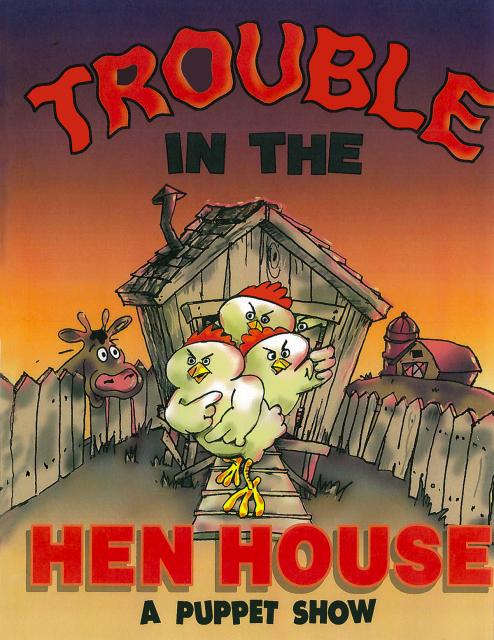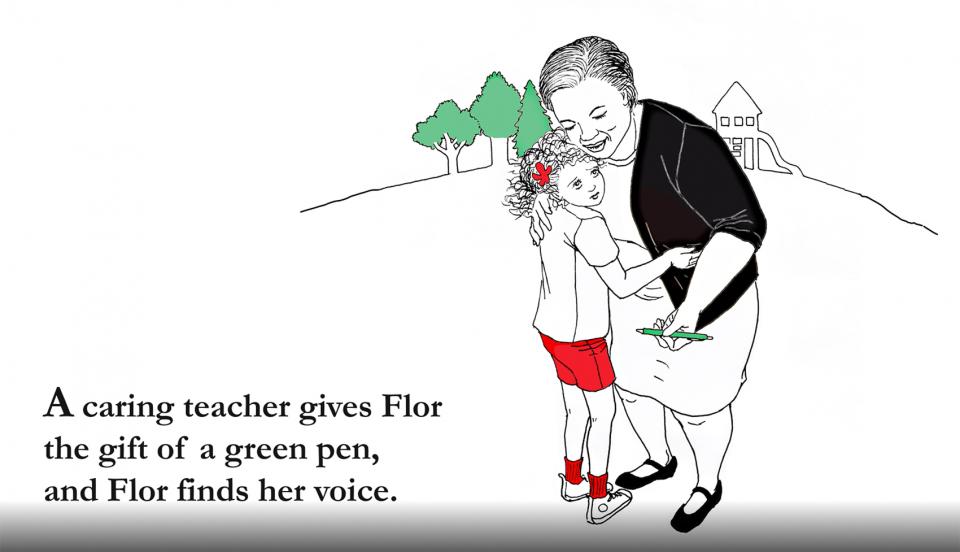Trouble in the Henhouse
By Phyllis Chiu
Illustrated by Jos Sances
2002, 22 pp
Grades: K-5
By Bill Morgan
One of the real classics of social justice books for kids was written by our own Phyllis Chiu, who was at the time an elementary teacher in Los Angeles. Chiu was also a member of the CFT Labor in the Schools Committee, which has produced a bumper crop of labor (and now climate justice) materials for progressive-minded teachers to use with their classes. The name of Chiu’s booklet is Trouble in the Henhouse, and among all of the committee’s publications, it is the #1 bestseller.
It’s easy to see why. The hens are egg-layers, working women. They get together to resist their villainous employer Farmer Brown, who tries every way he can to get them to produce more eggs while spending less and less on their upkeep. Finally, they have had enough. When they send their spokespeople to talk to him, he throws them in jail. It’s only when a cow tells them about a “union” (“We’re a group of working cows,” she begins) that they unite and present Brown with a list of their demands.
Sounds good, doesn’t it? Like a lot of the books we’ve reviewed here, Trouble in the Hen House is a metaphor about work and workplaces. Books like Doreen Cronin and Betsy Lewin’s “Click Clack Moo” come to mind. Good juvenile fiction writers put problems and conflicts into structures that make them available to children. They make sympathetic characters and give them faces and personalities. (In this story, we never even see the face of the poomouthing, sinister Farmer Brown who has even threatened the hens with death if they don’t lay enough.)
Two things set Chiu’s book apart from comparable stories: First, she doesn’t just let the story end as a pleasant tale of a successful rebellion. The story features a list of labor concepts, the very ones we adults use when we talk about such things: “production,” “complaints,” “union,” “conditions.” Even “average” and “cholesterol” make the list. Perfect for teachers who want to extend this little fable into a primer on labor relations and direct action.
Second, the book is a play reader’s theater piece that invites the kids into the story to act it out. (Trouble in the Hen House has by now been presented in various versions in schools all over California.) There are even patterns to make puppets of the main characters, right in the book. Chiu always denied that she was influenced by Disney’s “Chicken Run,” a nice tale that came out about the same time about some chickens who want to escape their factory farm. But Chiu’s chickens are not about that. If the Disney tale was about escape, Chiu’s is about liberation.
“Don’t agonize, organize” goes the old labor saw, and so they do. There is no better presentation of basic workplace issues and an introduction to organizing and direct action.
About the Author
Bill Morgan is a retired San Francisco teacher, member of United
Educators of San Francisco-Retired, AFT Local 61-R, and a member
of the CFT Labor
and Climate Justice Education Committee. Morgan, and others
on the committee, have authored and produced high-quality
curriculum materials for educators. Most curricula can be
downloaded for free; some are available in print at a minimal
cost.


